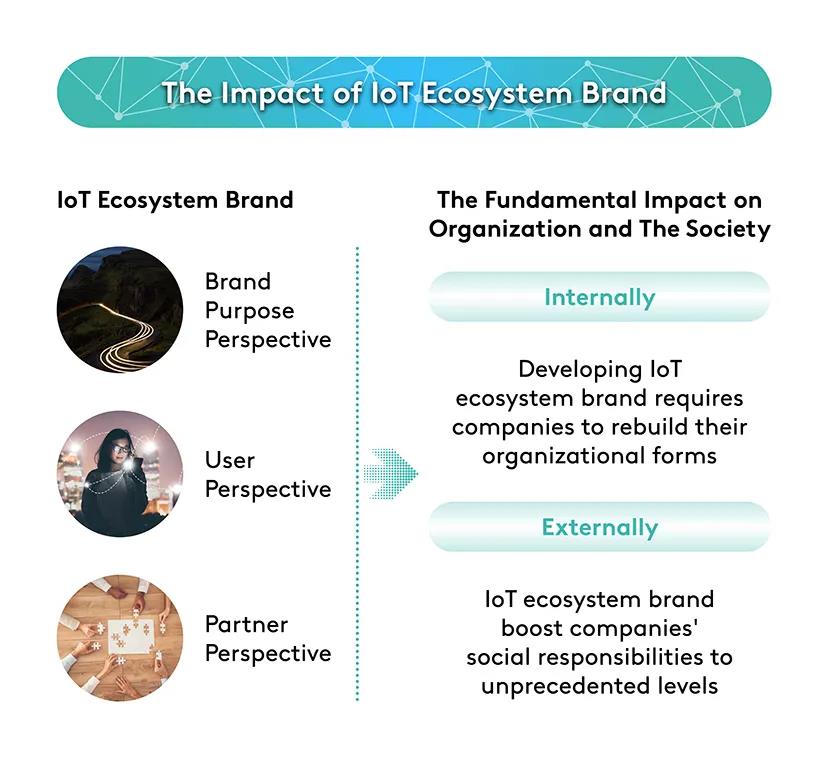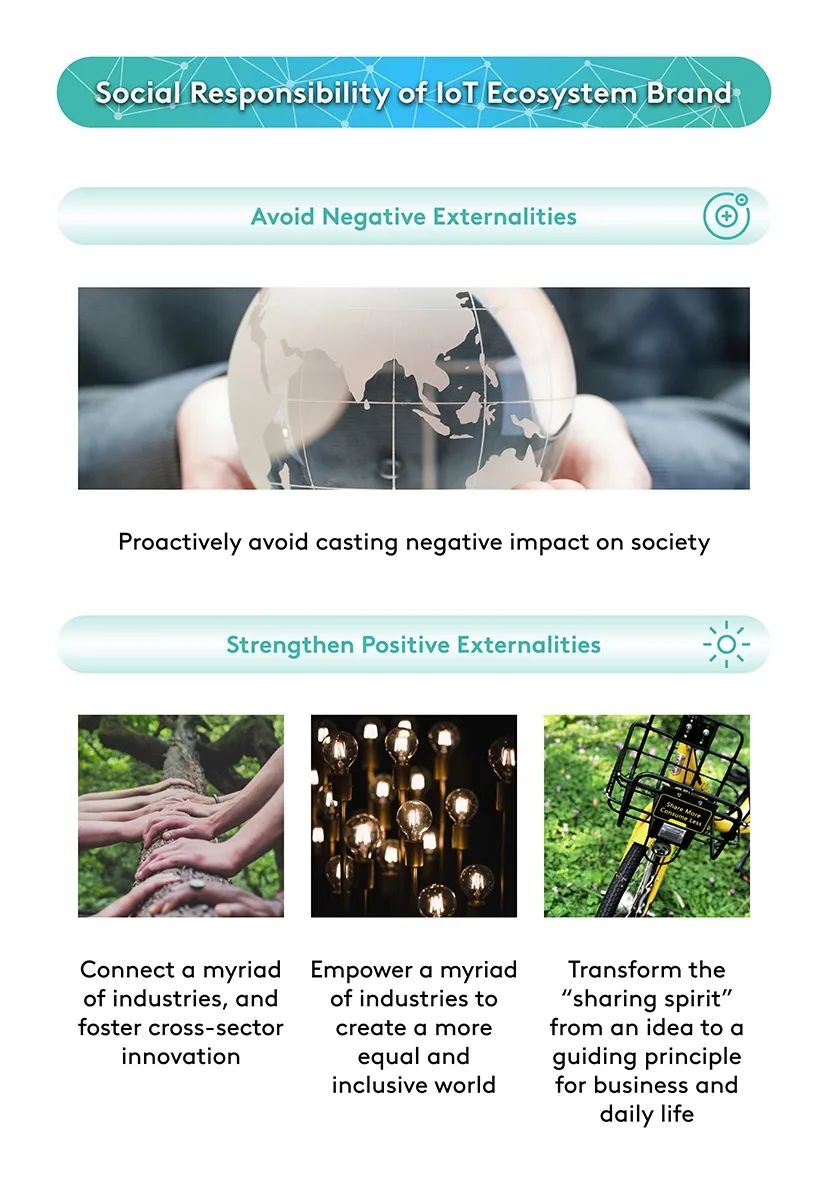The emergence of IoT ecosystem brand will have a fundamental impact on companies both internally and externally. Internally, developing IoT ecosystem brand requires companies to rebuild their organizational forms. Companies will need to change their employee role, organizational structure, management mode and incentive mechanism to enhance their competency to capture market opportunities and improve their responsiveness. Externally, IoT ecosystem brand will accelerate cross-industry innovation and resource sharing, contribute to building an equal and inclusive society, and boost companies' social contributions and accountability to unprecedented levels.

Organizational Reinvention
of IoT Ecosystem Brand
The IoT will lead to a major transformation of the traditional physical world. There are abundant opportunities and rapid changes in the IoT era. At the same time, changes of these opportunities will accelerate as technologies iterate and user needs evolve rapidly. Therefore, companies need to be able to keenly identify market opportunities and react quickly.
If companies want to keep a sharp eye out for the market, they cannot just rely on senior executives or any single department to identify market opportunities, but must enable everyone to become a touchpoint. In other words, a company needs to turn everyone into a "sensor" that can proactively identify market opportunities and meet user needs.
If companies want to have agility, they must shorten decision-making chains as much as possible and eliminate original internal organizational barriers, so that they can act quickly after discovering opportunities and transform themselves into "agile enterprises".
For most companies, organizational reinvention is needed to achieve the two goals above. Specifically, companies need to wrap up transformation in the following four aspects:

Social Responsibility
of IoT Ecosystem Brand
On top of reinventing organization, IoT ecosystem brand, as an inclusive brand paradigm, will have a long-term, far-reaching impact on the broader society. The social responsibilities of IoT ecosystem brands can be summarized as "avoiding negative externalities" and "strengthening positive externalities".
Avoid Negative Externalities
Avoiding negative externalities means that a company should do no harm to others or society due to its business. As IoT ecosystem brands have wide coverage and can leverage a wealth of resources, any action they take could have a broad impact. As such, they should proactively avoid casting negative impact on society in the midst of doing business. For example, IoT ecosystem brands must ensure data privacy and security in their ecosystem and avoid the unethical use of data. IoT ecosystem brands and their partners must abide by laws and regulations on labor rights, environmental protection, and business ethics, thus driving the entire ecosystem to develop in line with ESG principles. All these will be major challenges that IoT ecosystem brands face in the future.
Strengthen Positive Externalities
Meanwhile, as the leading brand paradigm in the IoT era, "big brands need to think big". This means that IoT ecosystem brands need to undertake more social responsibility and strive to create more positive externalities. For example, IoT ecosystem brands can use their core and unique capabilities to create social value. Based on what we've discussed previously, we could summarize the three core capabilities of IoT ecosystem brands – "connecting, empowering and sharing". By leveraging these capabilities, IoT ecosystem brands are expected to bring significant changes to society.

Conclusion
The groundbreaking IoT Ecosystem Brand paradigm will fundamentally change people's perception of brands, and will also help brands establish unique advantages that their competitors are unlikely to obtain anytime soon in the IoT era.
According to the BrandZ™ Top 100 Most Valuable Global Brands List, the average compound annual growth rate (2015-2020) of brand value for brands under this new paradigm was 18%. In contrast, the growth rate of other brands was a mere 6%. In the near future, any brand that hopes to lead in the IoT era must explore the path towards becoming an ecosystem brand. And the ecosystem brand will be the most forward-looking and prominent mode amid brand evolution in the IoT economic system.
We expect more companies and researchers to work with us, jointly explore and put into practice the paradigm of IoT ecosystem brands, to maximize the economic potential of this new brand paradigm and to quicken the shift towards an "equal and inclusive society with effective cross-sector co-creation and resources sharing".

